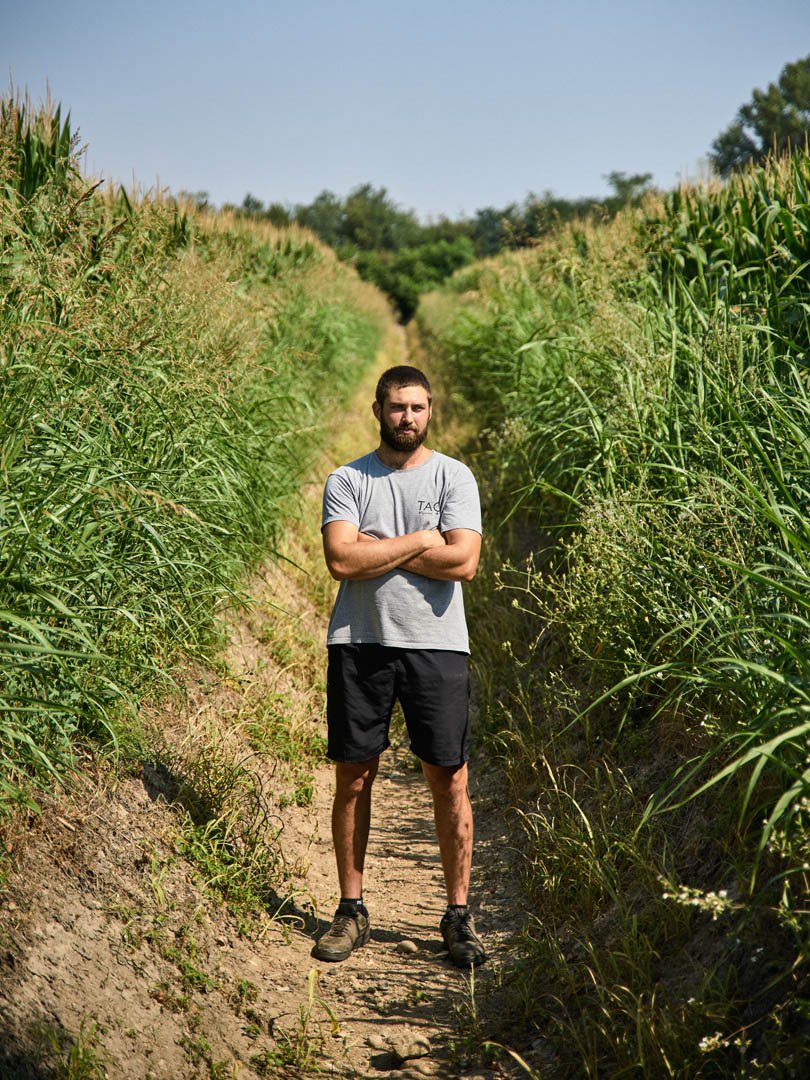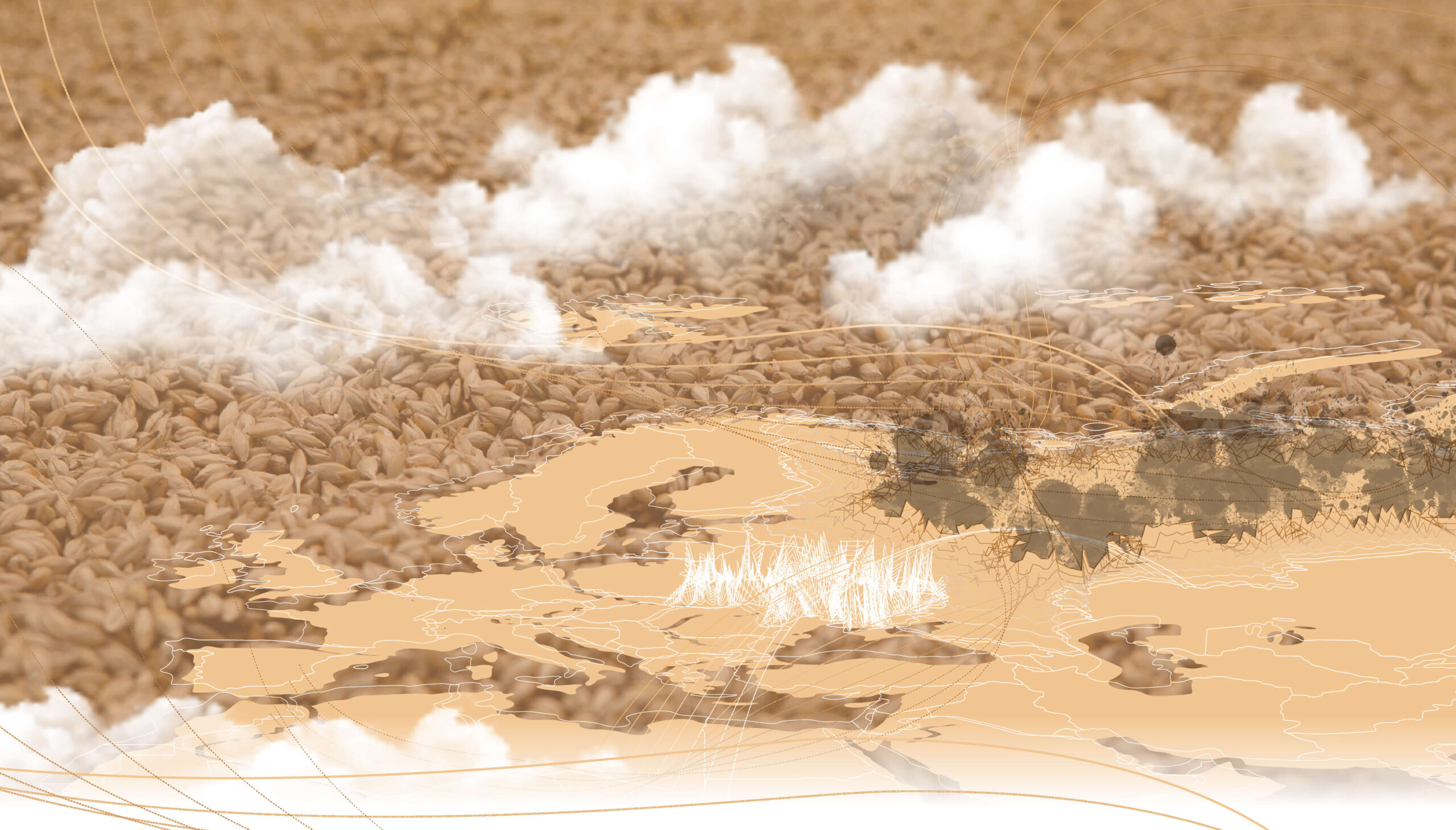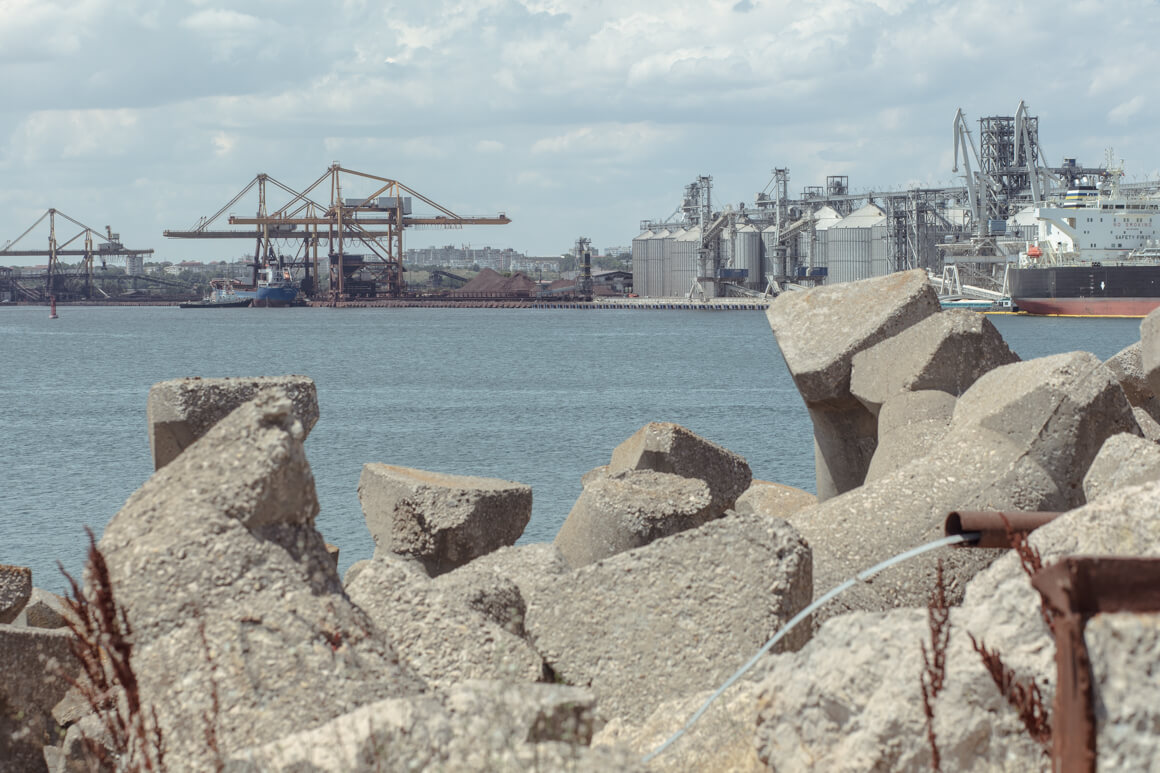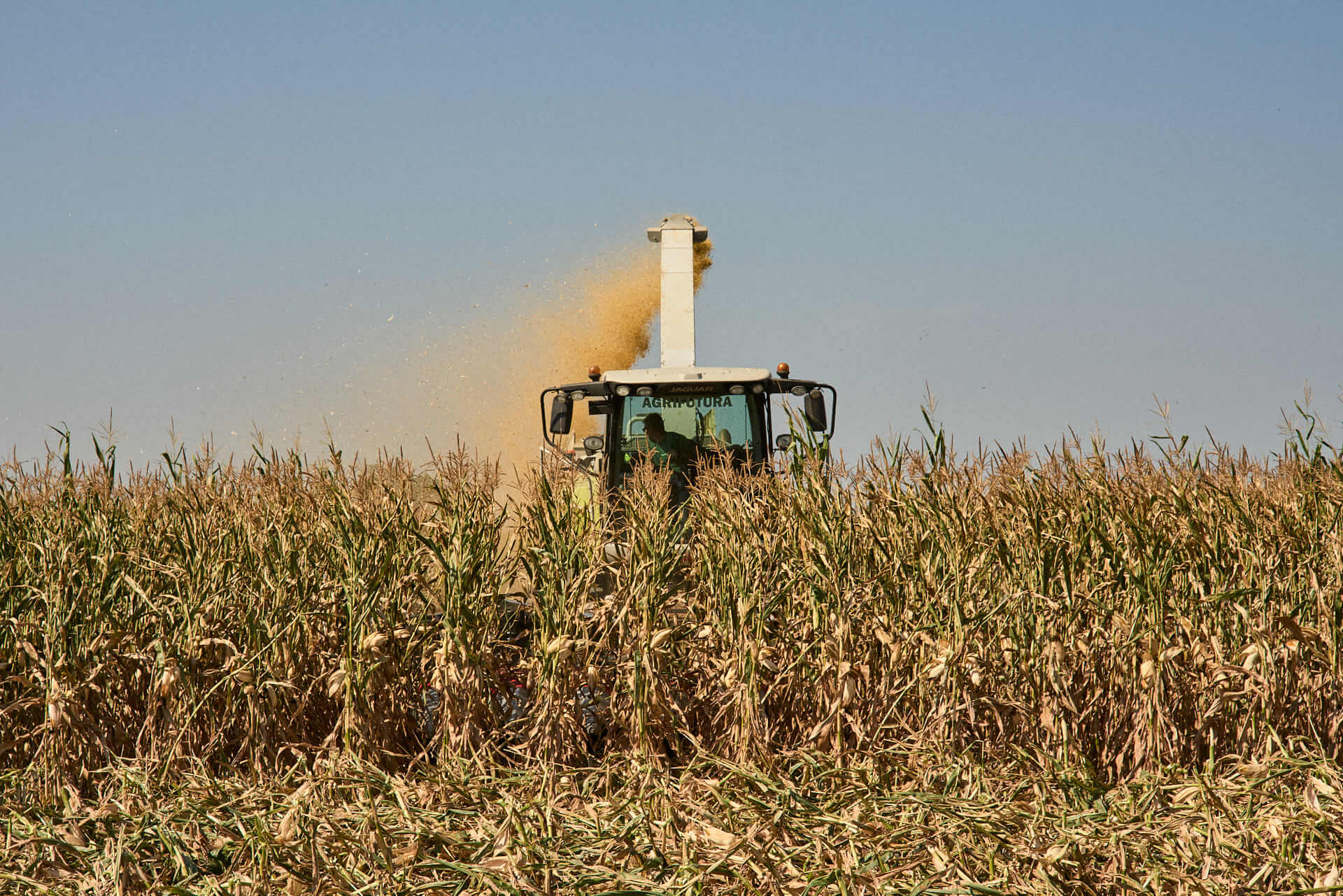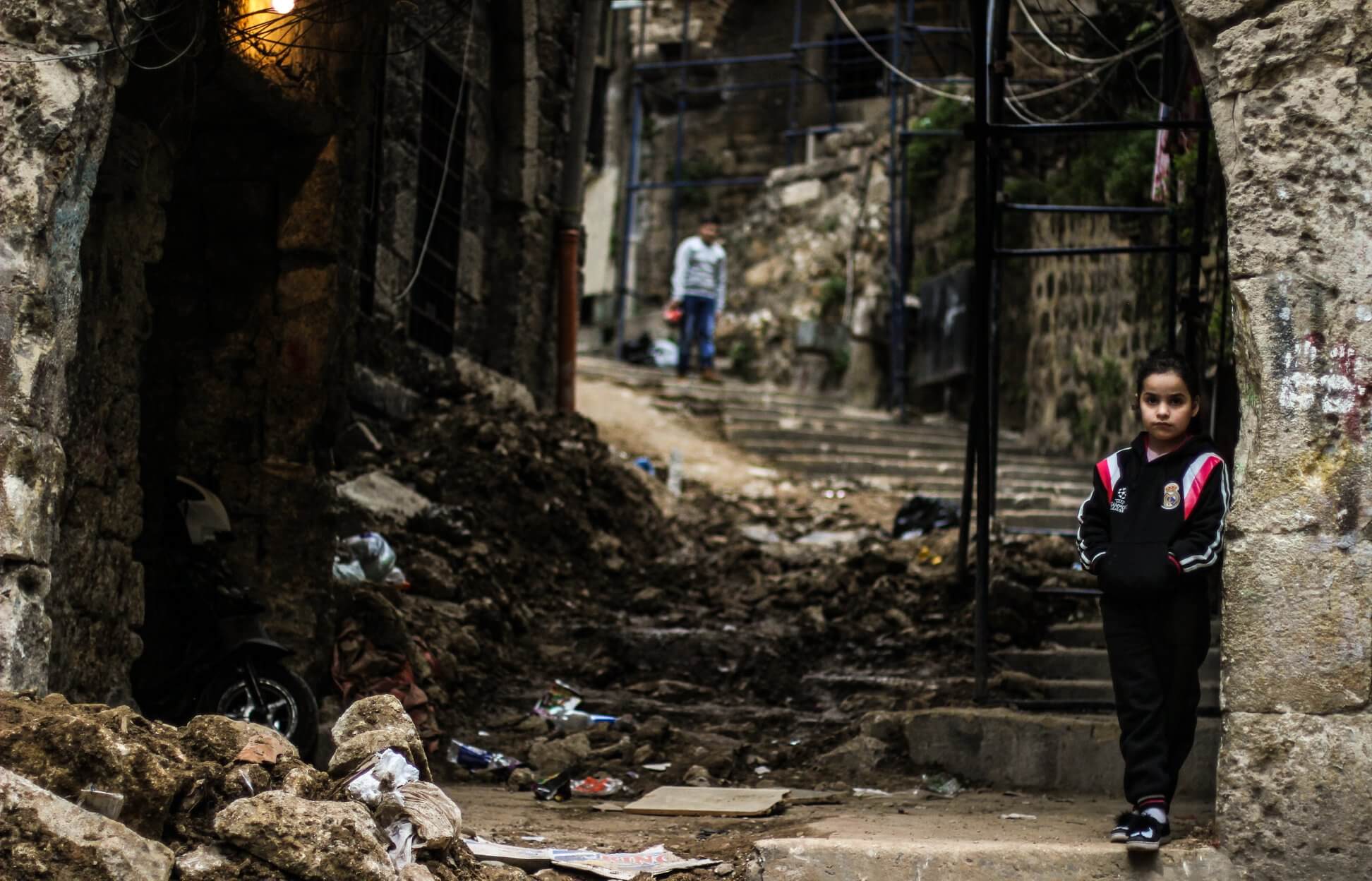Agribusiness as usual?
by Michael Bird | 08.12.2022
As Russia bombs Ukraine and kills its civilians, western farming giants keep their operations in Russia, and Russian farming giants maintain links to the EU
Following Russia’s invasion of Ukraine in February 2022, the two grain-rich countries have seen mixed fortunes for this year’s harvest.
While Ukraine’s exports have slumped, a bumper crop helped Russia’s wheat exports to boom, and expand to new markets.
This cash boost has helped Russia’s economy, while its gas market to Europe dries up, and EU and US sanctions block many trade routes.
Due to the war, many western retail and restaurant brands have pulled out of Russia, such as McDonald’s, Coca-Cola and Starbucks, but those in the agricultural sector keep their subsidiaries in Russia active.
These include American giants such as Cargill, and European brands Louis Dreyfus and Glencore.
At the same time, some of the largest Russian agricultural firms and business-owners maintain holding companies in Cyprus, trading in Switzerland and multi-million Euro operations in Germany.
Although the war has shocked the agri-business sector, and most non-Russian firms have put the brakes on new investments, for some, the war has not radically changed their business model.
Western companies have condemned the war, but some of their businesses are linked to individuals sanctioned by the EU and the UK, including the son-in-law of Russia’s Minister of Foreign Affairs, Sergei Lavrov.
We have approached Russian companies to ask them to confirm their assets in the EU, and western firms to confirm their assets in Russia. Our data is based on up-to-date information, from official sources, interviews, research, the media, company websites and reports.
After invading Ukraine, Russia Boosts Wheat Exports
Russia will continue to be the world’s largest wheat exporter in 2022, eclipsing Ukraine, Australia and the whole of the EU, according to data from the United States Department of Agriculture.
Favorable weather and lower exports from Ukraine are helping boost Russia’s cereal trade, and allow it to open new markets.
The country will shift 42 million metric tons of wheat in the trade year 2022/2023, a 27% increase on its figure for 2021/2022. Meanwhile, Ukraine is seeing a 41% decrease over the same period.
“Russia has a lot of wheat,” says Mike Lee of Green Square Agro Consulting and author of Black Sea Crop Forecasts, a farming analysis in the Black Sea area. “It’s a big crop. They have an overstock, and they need to get it out of the country quick enough as it generates cash revenue. With Russia’s natural gas markets reduced, where can the country get its cash from? Grain and fertilizer.”
Russia’s gain is also due to a drought in the EU and the bombing and devastation of Ukraine. “Over the course of the year, Russia is expected to increase monthly shipments to offset lower exportable supplies from its two main competitors [Ukraine and the EU],” says the USDA report.
Russia’s invasion of Ukraine has allowed the country to expand its wheat exports. “As the largest exporter and with a bumper crop, Russia seeks to expand its markets overseas, by boosting exports and continuing to open new markets such as Algeria,” adds the report. In the past, Egypt, Turkey, Nigeria, Bangladesh and Pakistan were major export markets for Russian wheat.
A grain corridor now exists in Ukraine, allowing the export of some wheat. In August 500,000 tonnes were shipped. But Vladimir Putin constantly threatens to renege on this deal, and Ukraine’s supplies are yet to reach its pre-war heights.
Ukraine also could have seen a bumper harvest this year, but Russia continues to occupy around 20% of the country’s land. “Agronomically, if the war hadn’t taken place, we’d be looking at a pretty positive position in terms of Ukraine yields,” says Mike Lee.
One reason for Russia’s bumper harvest could also be grain that Russia has taken from east Ukraine. “This possibly includes grain from the occupied territories of Ukraine – which could be as much as eight million tonnes [of a total of around 91 million],” estimates Lee. “But this is very much a back of the envelope calculation.”
Russia: Long-Term Plan on Food Security and Exports
Most of the largest agri-holdings in Russia remain Russian-owned. In 2014, Russia launched a policy of self-sufficiency in food and agricultural inputs, according to Oane Visser, associate professor at the International Institute of Social Studies (ISS), Erasmus University Rotterdam. “Since 2015, Russia greatly increased output for various crops,” says Visser. “They were a huge meat importer until the beginning of 2000. Now they are self-sufficient in meat and fish. Their second goal was to become self-sufficient in terms of the inputs.”
But many Russian farming mega-firms have strong EU links. Three of the top Russian agricultural companies—Miratorg, Rusagro and Agroinvest—are owned by holding companies in the EU, specifically in Cyprus. The Mediterranean island attracts Russian investors due to its reasonably low corporate tax rate of 12.5%, and a double taxation treaty with Russia, although this has “lost significance in recent years”, according to a Cypriot specialist observer in off-shores.
A major factor attracting Russian businesses include Cyprus’s network of lawyers, accountants, and banks, which have facilitated the passage of Russian money over the last decade. From the latest data available, this does not seem to be changing.
Why are western companies staying in Russia?
Major western farming companies remain in Russia, particularly those from the USA and Germany, but also those with connections to the UK, Switzerland, France and the Netherlands.
The world’s largest agricultural commodity trader, US-based Cargill, has invested over one billion dollars in Russia, and its rivals, traders Louis Dreyfus, Glencore and Bunge, continue operations in Russia, though Bunge appears to be selling up.
These companies are torn between a moral duty to leave a murderous dictatorship such as Russia, and an obligation to protect their investments, staff and money-making operations.
Oane Visser believes such companies are “continuing their business” and not investing in new facilities. “If you look at the profits they’re making, that doesn’t indicate that they sold off lots or gave up big chunks of their business,” he adds.
A major reason for companies staying in Russia, is that they don’t want to lose what they’ve already invested. “Companies are hedging bets and dragging it out as long as possible in the view that everything will stabilize, and they can carry on,” says an agricultural insider with deep knowledge of Russia. “From a business perspective, when an invasion takes place, the companies will be thinking: how can we continue to trade? How can we continue to operate? A war has a typical 18 month to two year cycle, so they are thinking: if we can hold our position, we’re not going to lose a lot of money. If we withdraw, they’ll be a vacuum for another company to take advantage. These are hard-fought territories that they don’t want to give up lightly. They will be playing for time, because if they exit now, they will be taken to the cleaners by the competition. If they show weakness, the sharks will circle.”
Grain prices this year have also seen record highs, due to the war, which had brought a cash boost to global traders.
“They are selling commodities and commodity prices are at an all time high, so in a way it’s like Amazon making record profits because people are not going to the shops, and they’re buying from Amazon,” says Sophie Murphy, executive director, Institute for Agriculture and Trade Policy (IATP), Minneapolis. “They hold something whose value has gone up because there’s been a supply shock, and it’s obvious who’s going to make the money, because there aren’t so many other companies in the wings who are going to come forward as grain traders and take advantage of the new higher prices for wheat.”
Now is not a good moment for newcomers to the market. “It’s the time to take advantage of your market position, and there are only a few companies who enjoy that market position,” adds Murphy. “They didn’t raise the price. They don’t need to raise the price. They sit there and take advantage of the fact that Putin has raised the price.”
Western Agri-Giants Still in Russia
The group’s access to deep-sea port facilities “gives our storage and handling businesses a major competitive advantage” says the company.
The group employs around 436 in Russia, and Viterra’s shareholders are Glencore (UK/Switzerland), CPP Investments and British Columbia Investment Management Corporation (BCI).
A subsidiary of the group owns 50% of a port terminal in Taman, which has a reported capacity of around a tenth of Russia’s total wheat exports. This is “part of the most rapidly developing port in the Black Sea, and one of the most advanced grain export facilities in Russia.”
The remaining 50% of Taman is owned by Demetra Holding, an infrastructure company and part of the Russia-based Marathon group. Marathon’s President is 40-year-old Alexander Vinokurov, who is the son-in-law of Russia’s Minister of Foreign Affairs, Sergei Lavrov.
The EU sanctioned Vinokurov in March 2022, on the grounds: “Vinokurov has therefore close ties to the Russian government and is involved in economic sectors providing a substantial source of revenue to the Government of the Russian Federation, which is responsible for the annexation of Crimea and the destabilisation of Ukraine.”
Response: Approached about this connection, Viterra’s spokesperson stated to us: “Mr. Vinokurov is sanctioned by the EU, however he is only an indirect small minority shareholder of Demetra Holding. As such, the fact that he is sanctioned by the EU does not trigger any applicable sanctions rules regarding Demetra Holding or Taman… Moreover, dividend payments to Mr. Vinokurov, or any other shareholder of Taman, are currently blocked. Hence, Viterra is in full compliance with applicable EU sanctions rules.”
On 30 March 2022, Glencore made a statement condemning “the actions taken by the Russian government against the people of Ukraine.” and “Glencore will not enter into any new trading business in respect of Russian origin commodities unless directed by the relevant government authorities.” But the firm stated: “Glencore will continue to honour its legal obligations under pre-existing contracts, subject to meeting all applicable sanctions in accordance with our Sanctions Policy and where it is feasible and safe to perform these contracts.”
Louis Dreyfus owns a grain terminal in Azov, Rostov region. Opened in 2017, this was financed with loans from the European Bank for Reconstruction and Development (EBRD) to the tune of tens of millions of Euro, though exact figures are not public.
The company’s inland elevators are located in the Stavropol, Voronezh and Volgograd regions. Among these, the riverside elevator in Volgograd, allows grain exports along the Volga river to the Caspian Sea.
“Historically, Russia has been a country of particular significance for our group, which has been active here since 1864,” said Margarita Louis-Dreyfus, chairperson of Louis Dreyfus Holding in 2017. “We are convinced that Russia will remain a dominant player in the global agricultural markets, and we have been reinforcing our presence through continuous investment in several grain assets over the past 10 years.”
Response: On 4 March 2022, Louis Dreyfus Company (LDC) said the Group suspended its operations in Russia at the start of the crisis, but this has since changed. In the mid-year interim report the company stated: “in a challenging, complex and rapidly-evolving environment, LDC resumed its operations in the country to the extent possible, aiming to meet commitments to and demand from customers, while complying with all applicable sanctions, laws and regulations.”
US agri-giant Bunge has an Oilseed crush plant in Russia, which is still operating and serving the domestic market, although this is up for sale, according to the latest financial figures. The company has been scaling back its operations. In March 2021, Bunge sold its Rostov grain terminal in southern Russia to former top managers of grain trader United Grain Company, and Russian bank Sberbank. Bunge remains until sanctions say otherwise.
Response: On 10 March 2022, Bunge suspended new export business from Russia. “Russia and Ukraine play an important part in the global supply of many agricultural commodities. That’s why, for now, we operate in Russia in compliance with all legal sanctions, and we have stopped all investment and non-essential activity in the country.”
Cargill has a massive estate of feed plants, factories, silos and ownership stakes in grain terminals from north of Moscow to the Black Sea.
Since 2013, Cargill has owned a 25% stake in the KSK grain terminal in the Black Sea port of Novorossiysk. In 2020, this ranked second in Russia in terms of grain handling volumes. It is still advertised on Cargill’s web site.
Cargill began furnishing grain supplies to the USSR in 1964. In 1991, a Cargill office opened in Moscow to boost operations.
By the mid-1990s, Cargill bought a glucose factory to supply Mars in an existing former-Soviet facility in Efremov, Tula Oblast. In 2009, the production of feed for Russian producers of meat and dairy products began at this site. In 2011, Cargill acquired animal feed provider Provimi “a global animal nutrition company”, including its Russian facilities and took on 1,200 workers.
The total number of employees in Russia exceeds 3,000, according to the latest figures available. Cargill is one of the biggest foreign investors in Russian agribusiness, to the tune of over 1.1 billion USD.
Today the business claims it has activity in Russia is in grain and oilseeds trading, oilseed crushing, refining, bottling and hardening, animal feed formulation, production and distribution, production and sales of syrup, starches and starch derivatives, food and feed ingredients sales, poultry processing, vital wheat gluten production, and specialty food ingredients, including texturisers. However, Cargill won’t confirm its exact assets in the country.
“Cargill is deciding whether it wants to operate or not from Moscow,” says Sophie Murphy, Executive Director, Institute for Agriculture and Trade Policy (IATP), Minneapolis. “It’s up to Cargill. We don’t know what Cargill holds. We don’t know if they’re sitting there with empty trucks or sitting in Moscow holding all of its wheat, and we don’t know if it will leave today or tomorrow, and we can’t order it to leave today or tomorrow. Cargill doesn’t like to talk about what it owns.”
Response: On 11 March 2022, the firm stated it was to “scale back investment” but “continuing food and feed operations”. When we asked whether the company would scale back assets or divest, or whether it was still trading in Russian-sourced crops, the company did not respond.
Response: Asked whether NCH has any plans to divest its ownership of Agroterra, the company stated: “As a matter of policy, we don’t comment publicly on our investments.”
Russian Agri-Giants with Western Links
Russia’s largest beef and pork producer, Miratorg, operates over 650,000 hectares, making the company the second largest landholder in Russia, according to 2018 data. Miratorg supplies meat to the Persian Gulf, Southeast Asia, Africa, former USSR, and even Brazil.
In the early 2010s Miratorg spent almost six years “importing everything they need to instantly set up a beef industry – cows, bull semen, vaccines, corn and grass seed, horses – mostly from the U.S. to make this just like an American cattle operation, except with Russian workers,” according to NPR.
This included hiring real American cowboys, who could double their salary in the great plains by working in the former USSR.
The company is run by Moscow-based twin brothers Alexander and Viktor Linnik. The pair are the owners of two companies in Cyprus: Saudade Enterprises Limited—active since 2006—and Agromir Limited, active since 2005. Agromir Limited owns a vast network of Miratorg companies in Russia. This Cypriot company was owned by a firm based in the British Virgin Islands until last year. Interestingly, a new business, Agromir Holdings Limited, was registered in February this year in Cyprus with unnamed shareholders, and a shareholding of Agromir Limited.
Response: Latest data from Cyprus indicates companies are still active.
As Ros Agro PLC, the company launched on the London Stock Exchange in 2011, but the LSE suspended trading in the company in March 2022, in light of sanctions on Russia.
Rusagro controls 642,000 hectares—one of the largest land banks among Russian agriculture producers. A major sugar beet grower, the firm also produces wheat, corn, sunflower, sugar, soybeans, edible oil, dairy and industrial fats.
The company is owned 100% by Cyprus-based holding company Ros Agro PLC and two Cypriots are on the board of directors. 55-year-old Vadim Moshkovich started the business in 2004, and was sanctioned by the EU in March 2022 due to being part of Putin’s inner circle.
The EU sanctions stated that Moshkovich is “involved in economic sectors providing a substantial source of revenue to the Government of the Russian Federation, which is responsible for annexation of Crimea and destabilisation of Ukraine”. He was invited to a meeting with Putin on 24 February 2022 (with 36 businesspeople) to discuss the impact of the course of action in the wake of Western sanctions. “The fact that he was invited to attend this meeting shows that he is a member of the closest circle of Vladimir Putin and that he is supporting or implementing actions or policies which undermine or threaten the territorial integrity, sovereignty and independence of Ukraine, as well as stability and security in Ukraine,” states the EU sanctions.
Response: Latest financial data indicates Cypriot holding is still active.
Response: Latest Cypriot data reveals the company remains held in the Mediterranean.
Farming giant Avangard Agro operates on more than 450,000 hectares of agricultural land, growing winter wheat, barley, sunflower and corn. Avangard Agro Trade AG in Switzerland carries out the international trade, and was still operational in June 2022.
The company, which began in 2003, also supplies grain products to companies in Germany, Spain and Norway, according to its website.
Germany-based Avangard Malz is the malting subdivision of the holding, which carries out brewers malt production business at four German plants, and is the largest malt producer in the country. Since 2006, Avangard Malz has invested more than 100 million Euro in the plants and employs 140 in Germany.
Response: On the website, Avangard Malz AG says it is a German joint stock company registered in Germany and working according to German commercial laws. “The owner of the company is Mr. Kirill Minovalov [Russian-based multi-millionaire]. Neither he himself nor his Bank Avangard are included in international embargoes or black lists of EU and other states.”
Giant Russian conglomerate Sistema owns one of the largest agro-holding companies in Russia, RZ Agro, along with members of the Louis Dreyfus family, the French founders of one of the largest agricultural trading groups, according to the latest data available.
Russian billionaire Vladimir Yevtushenkov was (until 2022) chairman of the board of Sistema, who was sanctioned by the UK because he “is or has been involved in obtaining a benefit from or supporting the Government of Russia by virtue of his ownership of a Sistema JSFC, a conglomerate which has business interests in the Russian energy and information, communications and digital technologies sectors, which are sectors of strategic significance to the Government of Russia.”
Sistema’s has an 89.7% stake in Russia Steppe AgroHolding, which, in turn, owns 50% of RZ Agro Holding Limited. The farming company operates over 110,000 hectares of land. The Louis Dreyfus family owns the remaining 50%, according to Steppe.
In April 2022, Yevtushenkov stepped down from the board of directors, and cut his stake to 49.2 percent in Sistema while his son, Felix, increased his stake to 15.2%. Sistema said the sanctions on Yevtushenkov were personal and did not target his companies.
The High Anti-Corruption Court of Ukraine has also confiscated the Ukrainian real estate and businesses of Yevtushenkov, TASS reports. In April 2022, the EU also imposed sanctions on Serguey Mndoiants, vice president of Sistema, who is “a member of the board of the Council for foreign and defence policy (SVOP), a think tank advising the Government of the Russian Federation on the conduct of foreign and defence policy”.
The deal with Louis Dreyfus began in 2012. “We are firm believers in the success of RZ Agro Holding as the grains sector in Russia has tremendous potential due to its low production costs and geographical position,” stated Gérard Louis-Dreyfus (who died in 2016) and Peter Mann, representatives of shareholders of RZ Agro Ltd at that time.
Response: Sistema confirms its ownership of RZ Agro through Russian Steppe. RZ Agro did not reply to a confirmation request.
One massive livestock and dairy producer from Germany, Ekoniva, continues its operations in Russia. The German-owned company was established in 1994, and includes three independent holdings, employing 13,000 in 35 regions across Russia.
The company is one of the largest raw milk producers in Russia and Europe and saw its revenues boom by 47% in the first half of this year, compared to the previous one. Besides dairy farming, EkoNiva-APK is engaged in crop production, seed growing and breeding, cattle breeding and organic farming.
Headquartered in Walldorf, Germany, Ekosem-Agrar AG is the German holding company of EkoNiva Group, and was founded by German-born Stefan Duerr.
Ekoniva claims to be “the largest John Deere dealer in Russia”, and was still selling John Deere tractors in Russia in mid-2022, although John Deere has suspended shipments to Russia.
“For some companies, Russia is just some percent or in their international business, with Ekoniva this is 100% in Russia,” says specialist Oane Visser. “So they have the choice to either stop or go into bankruptcy and lose all their money and make all their investors not happy, or continue.”
Response: neither Ekoniva or John Deere responded by the time we went to press.
Credits:
Written by Michael Bird, with help and advice from the OCCRP and IRPI
Graphics and layout: Razvan Zamfira
Illustrations: Andrei Cotrut
